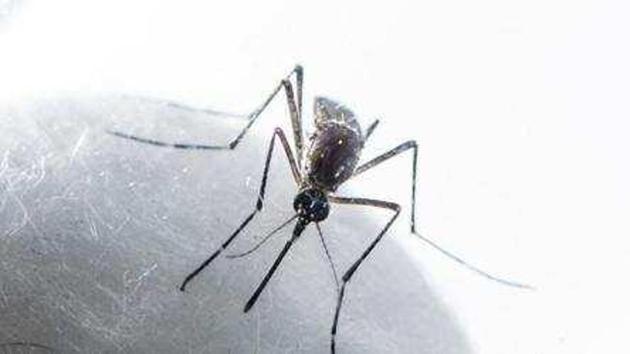As Punjab records 70 dengue cases in 30 days, state may not be prepared for another outbreak
Due to all focus on combating Covid-19, special wards for vector-borne disease patients yet to be set up.
At a time when the state is already grappling with Covid-19 outbreak, the health department is facing yet another challenge — dengue.

Punjab has seen 70 dengue cases in the last 30 days, while National Vector Borne Disease Control Programme (NVBDCP) has recorded 45 cases of malaria in the same period in the state.
As monsoon has already hit the region, cases of dengue fever, an illness caused by a viral infection transmitted by the Aedes mosquito, have started creeping up. The disease currently has no cure.
“In the last 30 days, 70 people were tested positive for dengue and 45 for malaria. Compared to corresponding period last year, the situation is under control as 120 dengue and 150 malaria cases were reported back then. Nearly 10,400 cases of dengue and 1,100 of malaria were recorded in 2019. Till now, no death due to the illness has occurred in the state,” said Dr Gagandeep Singh Grover, Punjab programme officer for NVBDCP.
He added, “Out of the 70 dengue cases, nearly 45 are from Ferozepur district. Most of the malaria cases have been reported from Bathinda, Mohali and Hoshiarpur. No clustering of dengue and malaria has been found in any district and orders have been given to health officials to start surveillance and preparations to handle the outbreak.”
As the Punjab health department’s focus right now is combating Covid-19, the state is ill-equipped and not ready to handle yet another outbreak with the limited resources. Since most government hospitals are treating Covid-19 patients, special dengue wards are yet to be set up in most districts. Also, health department officials and civic bodies across the state are yet to start fogging.
Besides Apheresis machines, most government hospitals do not have sufficient number of Apheresis medical kits, which are used to treat critical dengue patients.
Lockdown measures may also be contributing to increased mosquito larvae in areas such as unmanned construction sites, where pools of stagnant water form due to rains, creating the perfect breeding site for these mosquitoes.
Amritsar civil surgeon Dr Navdeep Singh said, “A majority of health officials are assigned Covid-19 related duties, but we will soon call a meeting for checking dengue preparations. We will ask municipal corporations to start fogging at the earliest. Also, we will set up dengue wards in local hospitals where Covid-19 patients are not being treated, to control the outbreak.”
When asked about the state’s preparedness against dengue outbreak, Dr Grover said, “It is true that the health department is focusing on controlling coronavirus disease, but preparations are on to handle other diseases. Since most health teams are engaged in Covid-19 duties, we are planning to hire more manpower for dengue control. We have sufficient funds and required equipment has been procured at state headquarters and we will soon distribute them in the districts.”
“Also, regular meetings are being conducted and wards have been set up in several areas. We have also prepared 8 to 9 lakh testing slides for malaria and dengue,” he added.





